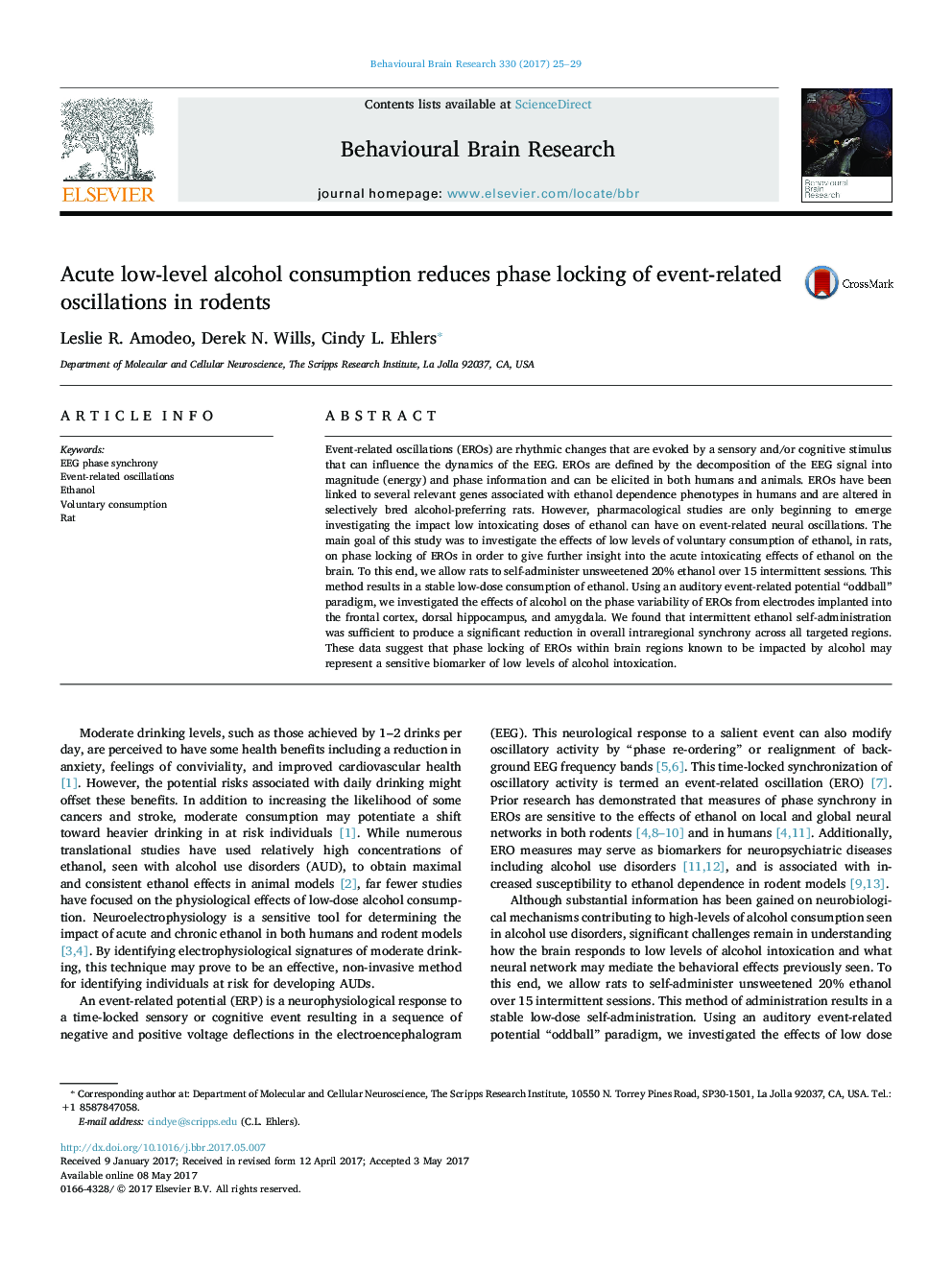| Article ID | Journal | Published Year | Pages | File Type |
|---|---|---|---|---|
| 5735067 | Behavioural Brain Research | 2017 | 5 Pages |
Abstract
Event-related oscillations (EROs) are rhythmic changes that are evoked by a sensory and/or cognitive stimulus that can influence the dynamics of the EEG. EROs are defined by the decomposition of the EEG signal into magnitude (energy) and phase information and can be elicited in both humans and animals. EROs have been linked to several relevant genes associated with ethanol dependence phenotypes in humans and are altered in selectively bred alcohol-preferring rats. However, pharmacological studies are only beginning to emerge investigating the impact low intoxicating doses of ethanol can have on event-related neural oscillations. The main goal of this study was to investigate the effects of low levels of voluntary consumption of ethanol, in rats, on phase locking of EROs in order to give further insight into the acute intoxicating effects of ethanol on the brain. To this end, we allow rats to self-administer unsweetened 20% ethanol over 15 intermittent sessions. This method results in a stable low-dose consumption of ethanol. Using an auditory event-related potential “oddball” paradigm, we investigated the effects of alcohol on the phase variability of EROs from electrodes implanted into the frontal cortex, dorsal hippocampus, and amygdala. We found that intermittent ethanol self-administration was sufficient to produce a significant reduction in overall intraregional synchrony across all targeted regions. These data suggest that phase locking of EROs within brain regions known to be impacted by alcohol may represent a sensitive biomarker of low levels of alcohol intoxication.
Related Topics
Life Sciences
Neuroscience
Behavioral Neuroscience
Authors
Leslie R. Amodeo, Derek N. Wills, Cindy L. Ehlers,
